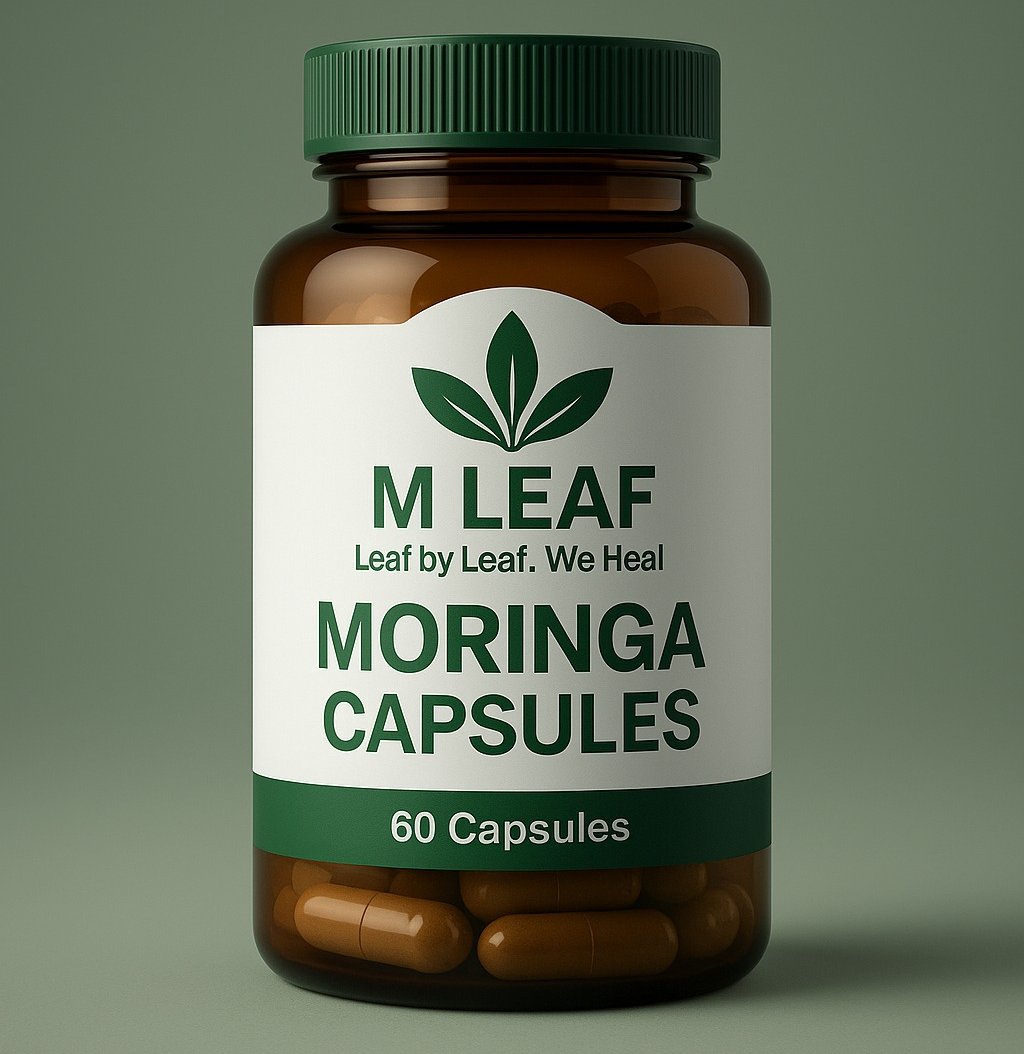Moringa Benefits: From Ancient Wisdom to Wellness
Discover the numerous moringa benefits, including its nutritional value and health properties. Learn how moringa leaves can enhance your well-being and contribute to a healthier lifestyle.
10/11/20257 min read


Introduction to Moringa: The Miracle Tree
The moringa tree, scientifically known as Moringa oleifera, has gained considerable attention in recent years, largely due to its exceptional nutritional profile and multiple health benefits. Originating from the Himalayan region of India, this versatile tree is now cultivated across various tropical and subtropical regions around the world, including parts of Africa, Southeast Asia, and Latin America. Moringa's adaptability to different climates and soil types has contributed to its widespread presence and utilization.
Historical Significance of Moringa in Ancient Cultures
Moringa, often referred to as the "drumstick tree" or "miracle tree," has been a significant plant in various cultures throughout history. Its historical importance can be traced back to ancient civilizational practices in regions such as India, Africa, and Egypt, where it was held in great esteem for its numerous health benefits and nutritional value.
In India, moringa has been utilized in Ayurvedic medicine for over 5,000 years. This holistic healing system recognized the tree's potential to mitigate numerous ailments. The leaves, seeds, and roots were incorporated into remedies for conditions ranging from inflammation to digestive issues. Ayurvedic practitioners highlighted moringa's antioxidant properties and its role in purifying the blood, often advocating for its inclusion in daily diets to promote overall well-being.
Furthermore, various traditional African healing practices have also revered moringa. Indigenous tribes utilized the tree's leaves and seeds to combat malnutrition, particularly in regions where food security was a challenge. The nutritional richness of moringa made it a staple in communal diets, and its medicinal applications, such as treating wounds and reducing fever, showcased its importance in promoting health and wellness across generations.
Additionally, ancient Egyptians valued moringa for its oil, extracted from the seeds, which was used not only for culinary purposes but also for skincare and in rituals. Historical texts indicate its use in embalming processes and as a remedy for various ailments, signifying its revered status in their culture.
The cross-cultural significance of moringa underscores its integral role in historical medicinal practices, highlighting how different societies recognized and harnessed its potential for health and healing. This deep-rooted appreciation sets the stage for the modern resurgence of interest in this remarkable tree in today’s wellness narrative.
Nutritional Benefits of Moringa: A Superfood Unveiled
Moringa, often referred to as a superfood, has gained prominence due to its impressive nutritional profile and profound health benefits. Rich in essential vitamins and minerals, moringa leaves are a source of several nutrients that contribute positively to overall health. Notably, moringa is high in vitamin C, an antioxidant that plays a significant role in immune function and skin health. Additionally, it offers a substantial amount of vitamin A, which is crucial for eye health and skin integrity, as well as vitamin E, known for its powerful antioxidant properties.
Furthermore, moringa is an excellent source of minerals such as calcium, which supports bone health, potassium, essential for heart function and blood pressure regulation, and iron, a key player in oxygen transportation within the body. Notably, moringa leaves contain higher levels of these nutrients compared to traditional sources such as spinach or kale. This unique nutritional composition not only enhances its health-promoting qualities but also allows moringa to serve as a convenient dietary supplement for those seeking to bolster their nutritional intake.
In addition to vitamins and minerals, moringa is packed with antioxidants, including quercetin and chlorogenic acid, which help combat free radicals in the body. These compounds have been linked to various health benefits, such as reducing inflammation and supporting cardiovascular health. Scientific research has also indicated that the consumption of moringa may help lower blood sugar levels, a crucial factor for managing diabetes and promoting metabolic health.
Overall, integrating moringa into one’s diet can provide a multitude of nutritional advantages, supporting various bodily functions and enhancing overall wellness.
Moringa in Modern Wellness: Trends and Applications
Moringa, often referred to as the "miracle tree," has experienced a significant rise in popularity within modern wellness circles. This trend can be attributed to its rich nutritional profile and a multitude of health benefits. As consumers become increasingly health-conscious, moringa has emerged as a desirable ingredient in various health food products. Its leaves, pods, and seeds are now commonly found in dietary supplements, powders, and beverages, enhancing the overall appeal for those seeking natural solutions for their well-being.
The incorporation of moringa into dietary supplements has gained substantial traction. Once limited to herbal remedies, moringa capsules and extracts are now widely available, promoting benefits such as improved energy levels, enhanced metabolism, and antioxidant support. Health enthusiasts value moringa not only for its nutritional density but also for its versatility—allowing it to be easily integrated into daily routines. For instance, moringa powder can be added to smoothies, soups, and salads, making it a flexible option for those looking to enhance their nutritional intake.
Furthermore, the beverage industry has adapted to the rising demand for moringa, showcasing its adaptability in health drinks. From moringa-infused teas to plant-based protein shakes, beverage manufacturers have recognized the potential of this superfood as a key ingredient. The calming properties of moringa tea, combined with its health benefits, serve to attract a broad audience ranging from fitness aficionados to individuals looking for holistic wellness solutions.
Globally, interest in moringa continues to burgeon, with various cultures embracing its therapeutic properties and nutritional benefits. As more individuals prioritize holistic approaches to health, moringa stands at the forefront, marking its essential role in modern wellness practices. This growing recognition in the wellness community highlights the enduring legacy of moringa, bridging ancient wisdom with contemporary health trends.
Sustainability and Cultivation of Moringa
Moringa, often referred to as the “miracle tree,” stands out not only for its nutritional benefits but also for its resilience and adaptability in various environmental conditions. The cultivation of moringa is characterized by its low water requirements, making it an ideal crop for regions prone to drought. This plant can thrive in arid climates, requiring minimal irrigation, which presents significant advantages for sustainable agriculture. Moreover, moringa’s rapid growth rate allows for multiple harvests in a single year, further amplifying its potential as a reliable source of income and nutrition for farmers in developing countries.
One notable aspect of moringa cultivation is its ability to enrich soil health. The tree's leaves are rich in nitrogen, which contributes to the enhancement of soil fertility when used as mulch or green manure. This characteristic encourages responsible farming practices, enabling farmers to maintain productive land without the extensive use of synthetic fertilizers. Furthermore, the cultivation of moringa can lead to improved biodiversity, as it provides habitat and food sources for various wildlife species.
In addition to its ecological benefits, moringa plays a vital role in addressing food security and malnutrition. The tree’s leaves, pods, and seeds offer essential nutrients such as vitamins, minerals, and amino acids, which are crucial for health, especially in developing regions. By promoting the cultivation of moringa, communities can not only diversify their food sources but also enhance public health outcomes. The emphasis on sustainable practices in moringa farming aligns with global efforts to foster agricultural resilience and improve nutritional security. Consequently, investing in the cultivation of this versatile tree may yield significant long-term benefits for both the environment and human health.
Challenges and Considerations in Moringa Consumption
Moringa, known for its impressive nutritional profile, is increasingly recognized as a superfood. However, consuming moringa is not without its challenges and considerations that individuals should be aware of before incorporating it into their diets. One major concern relates to overconsumption. While moringa leaves are generally considered safe in moderate amounts, excessive intake can lead to adverse effects, including digestive issues, and headaches. It's advised that individuals stick to recommended serving sizes to mitigate these risks and ensure they derive health benefits without experiencing negative side effects.
Another issue to consider is the sourcing of moringa products. The nutritional quality of moringa can vary significantly based on how and where it is cultivated. Selecting high-quality moringa sourced from reputable suppliers is essential. Poor-quality moringa may contain contaminants such as heavy metals or harmful bacteria, which can pose health risks. Consumers should seek products that are certified organic and undergo rigorous testing to ensure their purity and safety. This approach not only supports personal health but also contributes to sustainable agricultural practices.
Moreover, moringa is not appropriate for everyone. Certain populations, such as pregnant or breastfeeding women, individuals with specific medical conditions, or those taking certain medications may experience contraindications. Moringa can affect blood pressure and blood sugar levels, so those with hypertension or diabetes should consult with a healthcare provider before adding moringa to their regimen. As with any supplement or superfood, it is crucial to exercise caution and seek professional advice if unsure about its effects on your health.
In conclusion, being aware of these challenges and considerations around moringa consumption is essential for making informed dietary choices. Understanding proper intake, ensuring quality sourcing, and recognizing individual health needs can help individuals safely enjoy the potential benefits of this remarkable plant.
The Future of Moringa: A Holistic Approach to Health
As we look ahead, it is evident that moringa is emerging as a vital component in the evolution of holistic health practices. With its rich nutritional profile, moringa offers a range of health benefits that have garnered significant attention within both the medical community and the wellness industry. Ongoing research continues to unveil its potential, exploring areas such as its anti-inflammatory properties, antioxidant effects, and role in supporting immune health.
In recent years, the integration of moringa into various health products has surged, with its inclusion not only in dietary supplements but also in functional foods and beverages. This evolution reflects a broader shift towards natural and plant-based solutions for health management. As health-conscious consumers increasingly seek out holistic remedies, moringa positions itself as a frontrunner due to its versatility and holistic benefits.
Moreover, the significance of moringa extends beyond individual wellness. With rising global health challenges, including malnutrition and chronic diseases, moringa presents a sustainable solution for enhancing dietary quality in underserved populations. Its ability to flourish in diverse environments allows it to be cultivated in regions that face food security challenges, making it a valuable resource in the fight against global health issues.
Additionally, as more practitioners embrace a comprehensive approach to health that encompasses physical, mental, and emotional well-being, moringa fits seamlessly into this framework. The potential for moringa to influence lifestyle medicine and preventive health strategies could reshape people's understanding and implementation of wellness. This holistic approach aims to harness the synergy of traditional wisdom and modern science, paving the way for an enriching future that prioritizes health and sustainability.
In conclusion, moringa's journey from ancient wisdom to modern wellness is far from over. The exploration of its benefits within holistic health practices signifies a promising future, where its role in promoting overall well-being is recognized and embraced, potentially transforming public health paradigms worldwide.
Wellness
Experience vitality with our natural herbal solutions—crafted to boost immunity, detoxify, and energize. Pure, plant-based wellness for everyday health, rooted in Ayurvedic tradition.
Contact us
support@mleaf.co.in
+91-9911382286
© 2025. All rights reserved.
